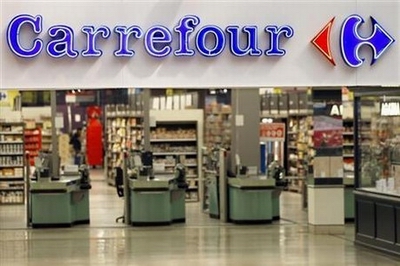
The comments from Georges Plassat come after a string of international store groups, including Britain's Tesco and Carrefour itself, have been forced to rein in their expansion plans after struggling in some foreign markets.
"What foreign retailers often underestimate when assessing opportunities to expand internationally is the growing power and sophistication of local competitors," Plassat told The World Retail Congress.
The challenge for global retailers was thus "how to brand themselves in different markets" and "local solutions" were needed to do that. "When you go to Brazil or China, these people are not expecting you," Plassat said. "We are not in an imperialist era."
After a period of selling assets to cut debt, Carrefour, Europe's largest retailer, is looking at ways to accelerate its growth in China and Brazil but has yet to decide how, Plassat told investors in August.
In China, lured by the prospect of a rapidly growing middle class in the world's second-biggest economy, many foreign firms have waded into its retail market only to find they lack local expertise, particularly in building supplier relationships.
In July, Tesco said it would fold its unprofitable business in China into a state run company as a minority partner, becoming the latest retailer to give up trying to crack the country on its own.
This has left world number one Wal-Mart (WMT.N) and Carrefour slugging it out alone, though there have been suggestions that Carrefour too could be seeking a local partner.





